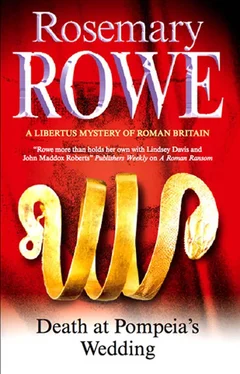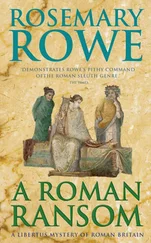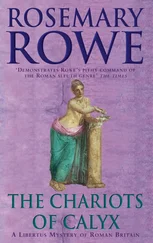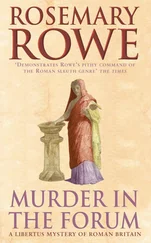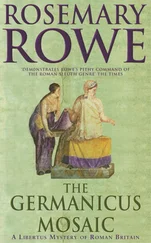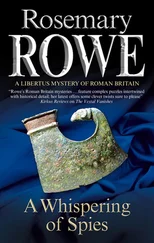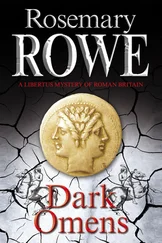Rosemary Rowe - Death at Pompeia
Здесь есть возможность читать онлайн «Rosemary Rowe - Death at Pompeia» весь текст электронной книги совершенно бесплатно (целиком полную версию без сокращений). В некоторых случаях можно слушать аудио, скачать через торрент в формате fb2 и присутствует краткое содержание. Жанр: Исторический детектив, на английском языке. Описание произведения, (предисловие) а так же отзывы посетителей доступны на портале библиотеки ЛибКат.
- Название:Death at Pompeia
- Автор:
- Жанр:
- Год:неизвестен
- ISBN:нет данных
- Рейтинг книги:5 / 5. Голосов: 1
-
Избранное:Добавить в избранное
- Отзывы:
-
Ваша оценка:
- 100
- 1
- 2
- 3
- 4
- 5
Death at Pompeia: краткое содержание, описание и аннотация
Предлагаем к чтению аннотацию, описание, краткое содержание или предисловие (зависит от того, что написал сам автор книги «Death at Pompeia»). Если вы не нашли необходимую информацию о книге — напишите в комментариях, мы постараемся отыскать её.
Death at Pompeia — читать онлайн бесплатно полную книгу (весь текст) целиком
Ниже представлен текст книги, разбитый по страницам. Система сохранения места последней прочитанной страницы, позволяет с удобством читать онлайн бесплатно книгу «Death at Pompeia», без необходимости каждый раз заново искать на чём Вы остановились. Поставьте закладку, и сможете в любой момент перейти на страницу, на которой закончили чтение.
Интервал:
Закладка:
The man looked at Helena Domna doubtfully, but all the same he went, leaving the two women alone with me and Minimus.
Livia flashed me a smile. ‘I’m sorry, citizen. I must leave you now and go back to our guests. I think-’
But what she thought I never had the chance to hear, because there was a sudden commotion at the outer door: a babble of voices, distant cheers and shouts, followed by the banging of a tambour and a tootling of flutes, over which the doorkeeper’s voice could still be heard, ‘Don’t come bursting in. Let me announce you. .’ But it was far too late.
The passage to the atrium was already full of shouting, laughing, jostling young men — all in fine togas which proved them citizens — some carrying boughs and instruments and already bursting into raucous bawdy song. ‘Where is the bride who is shortly to be wed?’ they carolled, crowding from behind. These were clearly the bridegroom’s friends and relatives, and they nudged ahead of them a large, plump older man, with a bald head and fleshy red-veined face, who seemed embarrassed by his entourage, but whose incongruous festive wreaths of fresh flowers identified him clearly as the would-be groom himself.
He tried to stop the whole procession as he saw us in the hall, but his attempt to call for order was drowned out by the noise. The singers were oblivious, they were wrapped up in the song, detailing with some relish — and great vulgarity — the more salacious attractions of a wife, and the jostling of the crowd behind him forced the bridegroom forward. The pressure of people in that narrow passageway was such that both the ladies had to step aside and move towards the kitchen quarters at the back, while Minimus and I were pressed against the little table by the wall.
We might have moved backwards into the atrium, but the noisy arrival of the bridegroom’s party had clearly reached the guests — and even Roman patience and good manners has limits when there is a wedding imminent. The screen was pushed open, and the guests came thronging out — laughing and clapping and giving the usual suggestive whistles to welcome the groom and his attendant group.
Someone shouted, ‘Where’s Honorius?’ and the chant was taken up. ‘We want Honorius, the father of the bride.’
‘Do something!’ I saw Helena Domna mouth the words, although her voice was lost in the tumultuous din. I looked at Livia and she nodded back at me.
There seemed to be only one thing I could do. I was pressing up against the table all this time, and with Minimus’s help, I scrambled on to it, seizing a drum from one of the revellers as I went. I stood and thumped on it, but without much effect, until I glimpsed the doorkeeper hovering uncertainly at the entrance way as if appalled that they’d escaped him and burst into the house. I caught his eye and motioned that he should sound the gong, which he did with such effect that it almost deafened us. It made the very rafters of the passage ring.
It did, however, quieten the crowd. The shouting and singing died uncertainly away, and when I banged the drum again the whole assembly turned and looked at me. People were standing on tiptoe in the atrium to see.
‘Citizens, members of the household and honoured guests,’ I said. ‘I fear that I have dismal news for all of you. Within the last few moments — so recently that news of it has not reached all the household yet — your host Honorius has taken ill and died. This has become a house of mourning, suddenly, and therefore the planned marriage cannot go ahead.’
Five
There was, not surprisingly, a little stir at this: first a universal gasp of disbelief, and then people huddled into groups and started whispering.
The bridegroom, who was standing at my feet, turned to his chief attendant, and above the general murmur of dismay, I heard him mutter in a plaintive tone, ‘So what do we do now? All that dowry — I was going to pay my debts. We had a contract. .’
‘And doubtless will again,’ the man hissed back at him, ‘once the period of due mourning has been properly observed. Honorius will certainly have left a will, and no doubt has specified a legal guardian for the girl — you can make representations to him later on. They can hardly turn you down, since her father made the match, and you know that her grandmother approved. In the meantime, Gracchus, try to look decently distressed. The fellow would have been your father-in-law, if he’d lived.’
Gracchus sighed and nodded and, glancing up and seeing that I was observing him, instantly put on a mournful face. He turned to his companion and muttered something else, but this time he made certain that no one else could hear.
I had not time to think any more of that, because my attention was drawn by the reappearance of the steward. He came from his errand to the kitchen and storage area, stopped to have a brief word with Livia, and had now started waving frantically at me. I saw him weave his way towards me through the crowded passageway, which was now more thronged than ever with shocked, muttering groups of guests. No one was showing any tendency to leave.
For an instant I lost sight of his tunic amongst the crush — there was little attempt to clear a path for him — until then he suddenly bobbed up by the table at my side, red-faced and panting with his tunic all askew, as if he had been jostling among the milling legs. He beckoned me closer, as if for secrecy and I stooped to listen to what he had to say.
‘The mistress says. .’ he murmured breathlessly, ‘to tell them there will shortly be some wine. Vinerius had tasted one of the new amphorae before I got to him, and up till now he’s suffered no mishaps. She says to offer that one to the guests, and then we can decently ask them to go back to their homes.’
I glanced at Livia and she confirmed this with a nod, and made a motion with her hands as if shooing geese away. Clearly she wanted me to disperse the crowd.
I held up my hand for silence and banged my drum again. This time the hubbub died down instantly. ‘If you will move into the atrium, a light memorial refreshment will be served,’ I said. ‘Then we must ask you to respect the family’s grief and leave the house as soon as possible.’
I had no sooner spoken those words, than I regretted them. If everybody left, how would I find who Antoninus was or even discover exactly what had happened here? I made a swift revision. ‘Though I would ask for your assistance in one matter, citizens. Everyone who was present when Honorius left the room, and anyone who went into the rear part of the house would oblige me very much by coming here, and speaking to me very briefly before they leave, to help me piece together what his last movements were.’ There, I thought, that should include Antoninus — since I was certain that he’d preceded me into the house — and would also help determine who might have had the opportunity to put something in the wine.
Over the general hubbub I raised my voice again. ‘Then we must ask you to go quietly to your homes — except any actual relatives, of course, who may be wanted to arrange the funeral. The rest of you may wish to offer your respects, but that will be appropriate at another time, and you will be notified of that, when the body has been properly laid out and members of the household have recovered from the shock.’
I had meant to be discreet in asking for information ‘before Honorius left the room’ but one of the guests, at least, was far too quick for me. No sooner had I finished than I heard a booming voice. ‘So he didn’t die naturally. I thought as much — I was sure I heard that servant talking about an accident. And, my friend Antoninus, don’t go skulking off.’
At the mention of that name I looked around, of course, and picked out the speaker instantly. It was the stout young town councillor that Minimus had jostled on his way to me, and he was accosting a hawk-nosed citizen at the atrium door. The fellow was squirming to get away from him, but the councillor persisted. ‘That fellow says he wants to question us. You had a lot of dealings with Honorius, I believe? And you were the last person to speak to him today.’
Читать дальшеИнтервал:
Закладка:
Похожие книги на «Death at Pompeia»
Представляем Вашему вниманию похожие книги на «Death at Pompeia» списком для выбора. Мы отобрали схожую по названию и смыслу литературу в надежде предоставить читателям больше вариантов отыскать новые, интересные, ещё непрочитанные произведения.
Обсуждение, отзывы о книге «Death at Pompeia» и просто собственные мнения читателей. Оставьте ваши комментарии, напишите, что Вы думаете о произведении, его смысле или главных героях. Укажите что конкретно понравилось, а что нет, и почему Вы так считаете.
